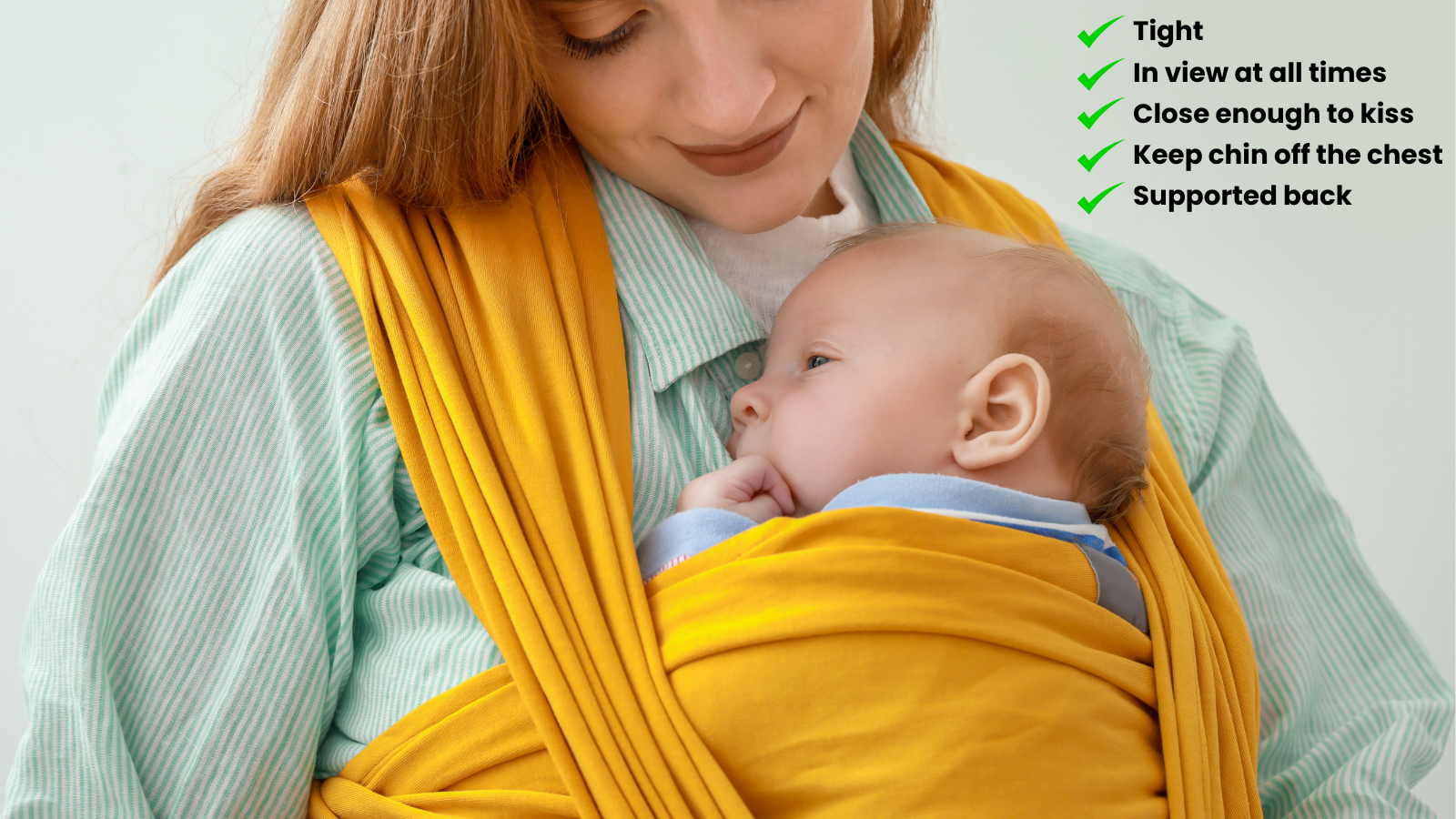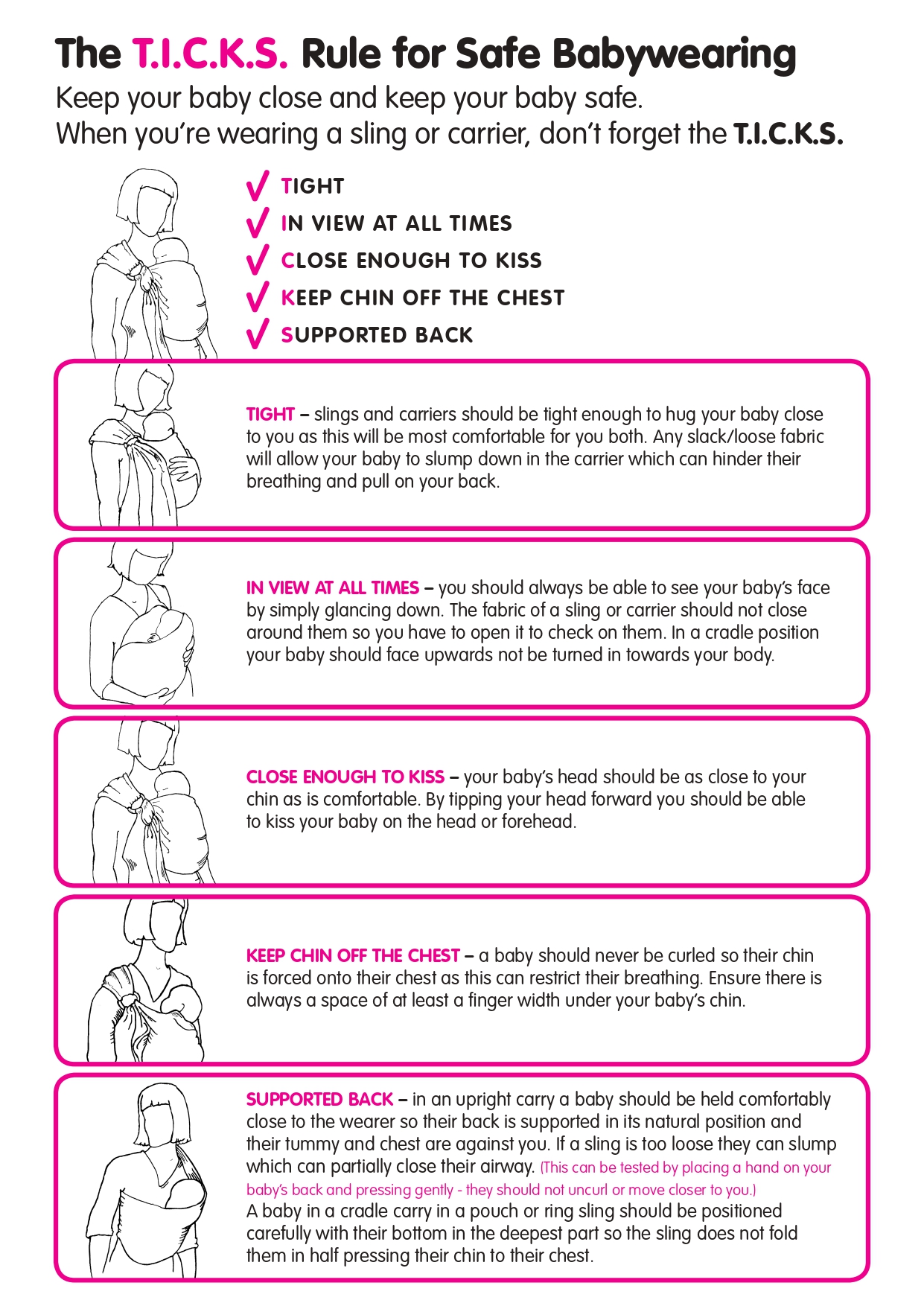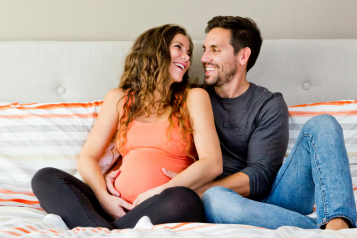Urgent need for baby wearing and sling safety awareness
If a baby’s chin rests on their chest or if their nose and mouth is covered, their airway can be obstructed and they can suffocate.
Following the tragic death of Baby Jimmy, who was being breastfed within a baby carrier worn by his mother. The Coroner found that there is insufficient information available from any source to inform parents of safe positioning of young babies within carriers and his Prevention of Future Deaths report into the case has called for clearer, publicly available information to ensure babies' safety.
How to keep your baby/child safe
Avoid buying cheap slings or carriers from online marketplaces. Stick to brand names you know and trust.
Follow the T.I.C.K.S advice for slings or carriers.
- Tight
- In view at all times
- Close enough to kiss
- Keep chin off the chest
- Supported back
This is so that your baby’s airway is kept clear, and you can check they can breathe easily and are not overheating.
TIGHT – slings and carriers should be tight enough to hug your baby close to you as this will be most comfortable for you both. Any slack/loose fabric will allow your baby to slump down in the carrier which can hinder their breathing and pull on your back.
CLOSE ENOUGH TO KISS – your baby’s head should be as close to your chin as is comfortable. By tipping your head forward you should be able to kiss your baby on the head or forehead.
KEEP CHIN OFF THE CHEST – a baby should never be curled so their chin is forced onto their chest as this can restrict their breathing. Ensure there is always a space of at least a finger width under your baby’s chin.
SUPPORTED BACK – in an upright carry a baby should be held comfortably close to the wearer so their back is supported in its natural position and their tummy and chest are against you. If a sling is too loose they can slump which can partially close their airway. (This can be tested by placing a hand on your baby’s back and pressing gently - they should not uncurl or move closer to you.) A baby in a cradle carry in a pouch or ring sling should be positioned carefully with their bottom in the deepest part so the sling does not fold them in half pressing their chin to their chest.
IN VIEW AT ALL TIMES – you should always be able to see your baby’s face by simply glancing down. The fabric of a sling or carrier should not close around them so you have to open it to check on them. In a cradle position, your baby should face upwards not be turned in towards your body.

Read more about baby carrying safety from Carrying Matters:
Click the link to download the Carry Well Carry Safely leaflet
As well as baby slings and carriers many other popular baby products can pose a serious risk to a child's safety, including nappy bags, sleeping bags and baby bath seats. Read more from the Child Accident Prevention Trust. Top 10 baby products that pose a serious safety risk.



